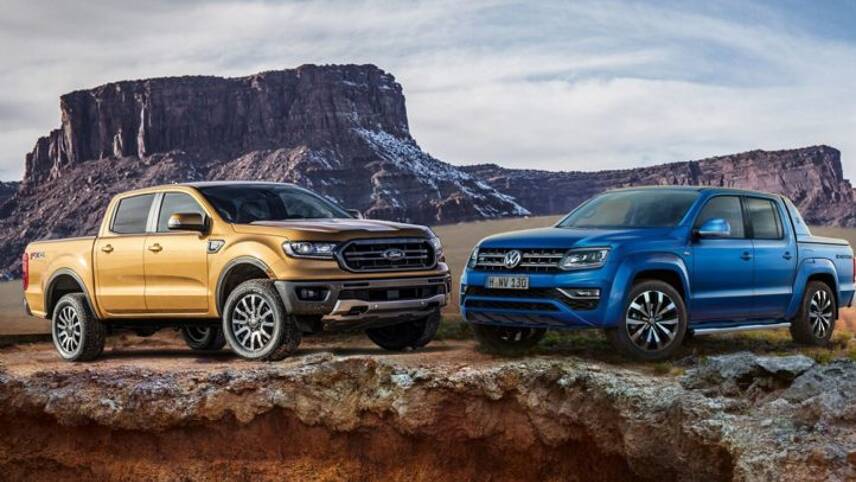Register for free and continue reading
Join our growing army of changemakers and get unlimited access to our premium content

After launching the first jointly-developed EVs in 2022
Unveiled on Tuesday (15 January), the collaborative agreement will initially see the two firms jointly develop a range of commercial vans and medium-sized pickup trucks, which will be launched across all of Ford and VW’s global markets in 2022.
Ford estimates that by collaborating on the development, manufacture and launch of these vehicles, the two companies will collectively save $500m (£387m) per year, starting in 2023.
Looking to the long-term, the agreement signed by Ford and VW also includes a memorandum of understanding (MoU) that the two companies will “investigate collaboration on autonomous vehicles, mobility services and further EVs”. The carmakers have both started to explore opportunities in these three fields on a standalone basis.
“Over time, this alliance will help both companies create value and meet the needs of our customers and society,” Ford’s chief executive Jim Hackett said.
“It will not only drive significant efficiencies and help both companies improve their fitness, but also gives us the opportunity to collaborate on shaping the next era of mobility.”
VW’s chief executive Herbert Diess echoed these sentiments, adding that the partnership would enable both companies to “harness [their] collective resources, innovation capabilities and complementary market positions to even better serve millions of customers around the world”.
Both VW and Ford have stressed that the alliance will not involve any “cross-ownership” of product lines in the future. Funding made jointly will instead be funnelled into infrastructure and efficiency projects.
Charging ahead
The announcement is the latest in a string of EV-related success stories for VW Group, which last week launched a new company focusing on EV charging solutions and renewable energy offerings.
Called the Elli Group, the new venture will be headquartered in Berlin and will develop and deliver products that assist the emergence and growth of the EV market, such as energy storage devices, charging points and ‘smart’ energy management systems.
VW has additionally confirmed this month that it will invest $800m in the expansion of its manufacturing plant in Chattanooga, Tennessee, to install EV production lines at the facility.
The first EVs to be made at the plant will be ID CROZZ SUVs, which are fully-electric and will be launched in 2022. The model is one of 20 fully-electric vehicles which VW has committed to launching by 2030 as part of its EV strategy.
Ford, meanwhile, has pledged to bring 16 new fully-electric and 24 hybrid models to market by 2025 as part of its $11bn low-carbon transport plan. Launched in 2017, the first move detailed in the plan is for Ford to bring a fully-electric SUV to market in 2020.
Sarah George


But where will all the power come from to charge all these vehicles.
We have just lost two potential nuclear power stations, HMG has indicated that coal fired generation will continue to be closed.
I cannot avoid the conclusion that HMG has not the fundamental understanding of the electrical power industry, and does not, moreover have any intention to remedy this defect.
I see no end to this madness.
Richard Phillips